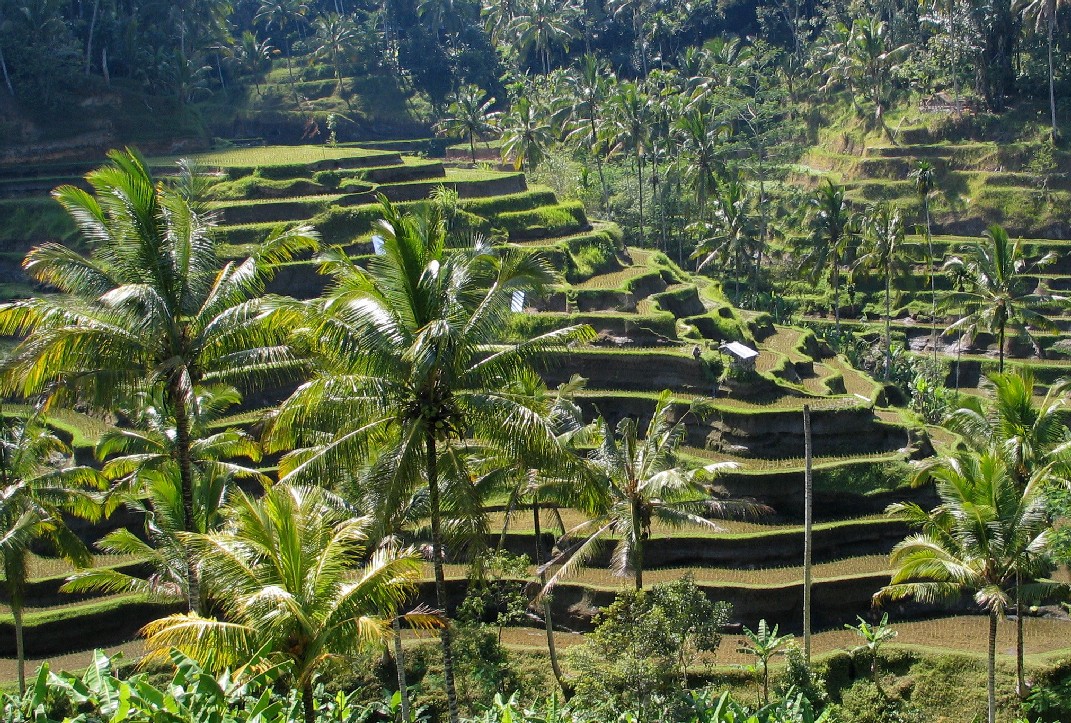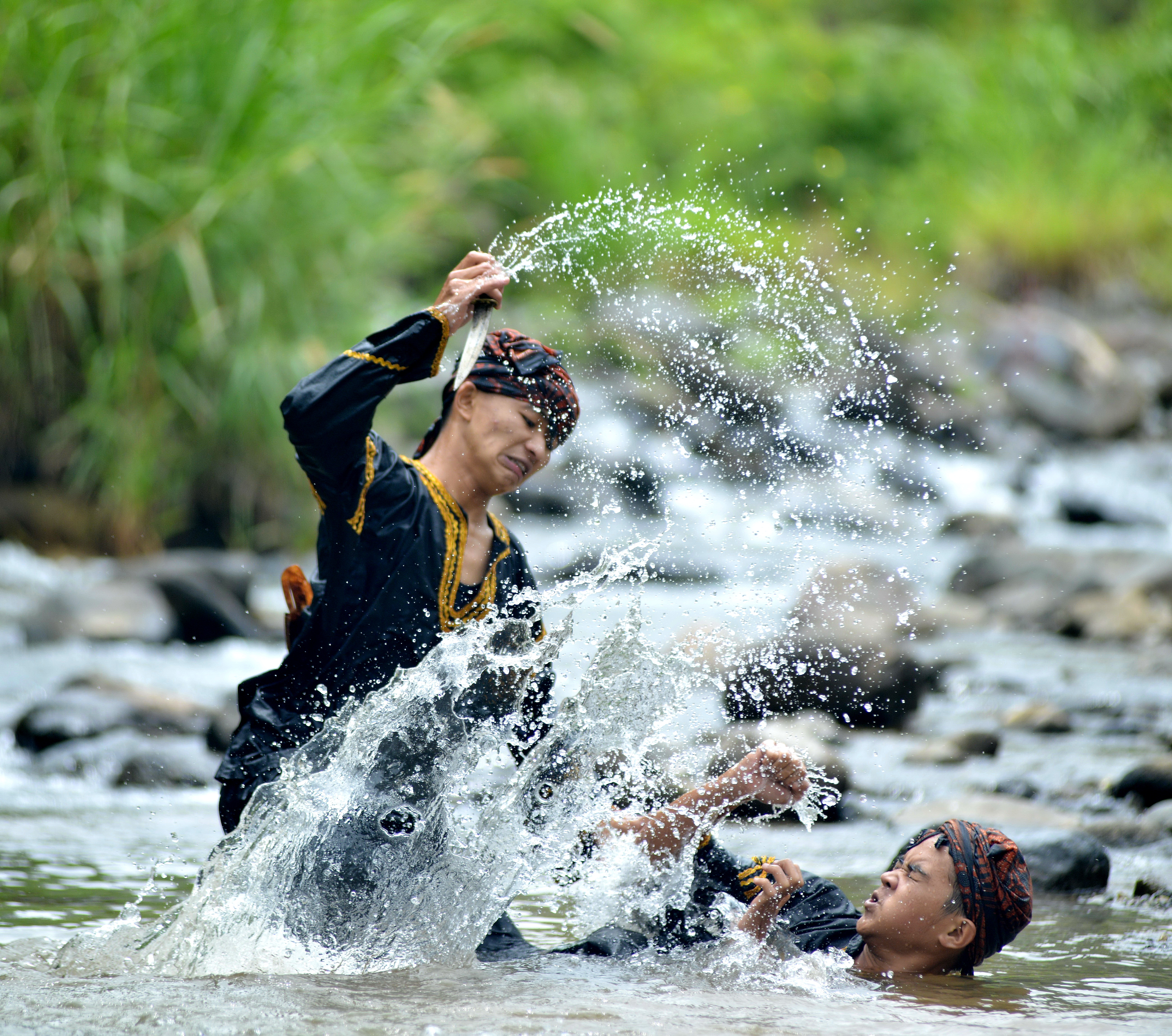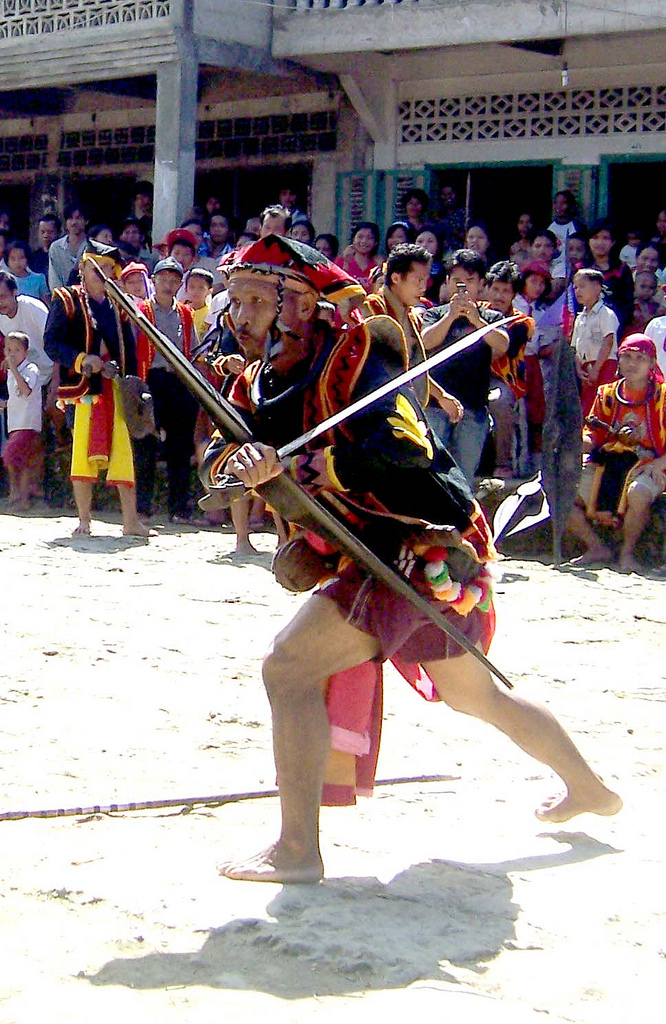|
Bakti Negara
Bakti Negara is a style of pencak silat from Bali. It is firmly rooted in old Balinese Hinduism and philosophies of Indonesia. The name means "national devotion", from the Sanskrit words ''bhakti'' (devotion) and ''nagara'' (country). It is the most widely practiced martial art in Bali and the most well-known style of Balinese silat, to the point that the system is commonly referred to simply as ''pencak Bali'' or ''kuntao Bali''. Some movements are similar to Balinese dances and performing arts like the Barong dance. Although the system is very much self-defence oriented, its practitioners also participate in modern competitions and have achieved some important victories in many regional, national and international tournaments. Philosophy Bakti Negara is a self-defense system to train ''cipta'' (thought), ''rasa'' (sense), and ''karsa'' (will), to develop complete a human being according to Balinese philosophy of Tri Hita Karana. Skill should not be used as the tool of aggressio ... [...More Info...] [...Related Items...] OR: [Wikipedia] [Google] [Baidu] |
Indonesia
Indonesia, officially the Republic of Indonesia, is a country in Southeast Asia and Oceania between the Indian and Pacific oceans. It consists of over 17,000 islands, including Sumatra, Java, Sulawesi, and parts of Borneo and New Guinea. Indonesia is the world's largest archipelagic state and the 14th-largest country by area, at . With over 275 million people, Indonesia is the world's fourth-most populous country and the most populous Muslim-majority country. Java, the world's most populous island, is home to more than half of the country's population. Indonesia is a presidential republic with an elected legislature. It has 38 provinces, of which nine have special status. The country's capital, Jakarta, is the world's second-most populous urban area. Indonesia shares land borders with Papua New Guinea, East Timor, and the eastern part of Malaysia, as well as maritime borders with Singapore, Vietnam, Thailand, the Philippines, Australia, Palau, and India ... [...More Info...] [...Related Items...] OR: [Wikipedia] [Google] [Baidu] |
Bali
Bali () is a province of Indonesia and the westernmost of the Lesser Sunda Islands. East of Java and west of Lombok, the province includes the island of Bali and a few smaller neighbouring islands, notably Nusa Penida, Nusa Lembongan, and Nusa Ceningan to the southeast. The provincial capital, Denpasar, is the most populous city in the Lesser Sunda Islands and the second-largest, after Makassar, in Eastern Indonesia. The upland town of Ubud in Greater Denpasar is considered Bali's cultural centre. The province is Indonesia's main tourist destination, with a significant rise in tourism since the 1980s. Tourism-related business makes up 80% of its economy. Bali is the only Hindu-majority province in Indonesia, with 86.9% of the population adhering to Balinese Hinduism. It is renowned for its highly developed arts, including traditional and modern dance, sculpture, painting, leather, metalworking, and music. The Indonesian International Film Festival is held every year in Bal ... [...More Info...] [...Related Items...] OR: [Wikipedia] [Google] [Baidu] |
Balinese Hinduism
Balinese Hinduism ( id, Agama Hindu Dharma; Agama Tirtha; Agama Air Suci; Agama Hindu Bali) is the form of Hinduism practised by the majority of the population of Bali.McDaniel, June (2013), A Modern Hindu Monotheism: Indonesian Hindus as ‘People of the Book’. The Journal of Hindu Studies, Oxford University Press, This is particularly associated with the Balinese people residing on the island, and represents a distinct form of Hindu worship incorporating local animism, ancestor worship or '' Pitru Paksha'', and reverence for Buddhist saints or ''Bodhisattava''. The population of Indonesian islands is predominantly Muslim (86%).Indonesia: Religions Encyclopaedia Britannica The island of Bali is an exception where about 87% of its people identify as Hindu (about 1.7% of the total Indonesian population). ... [...More Info...] [...Related Items...] OR: [Wikipedia] [Google] [Baidu] |
Tri Hita Karana
Tri Hita Karana is a traditional philosophy for life on the island of Bali, Indonesia. The literal translation is roughly the "three causes of well-being" or "three reasons for prosperity." The three causes referred to in the principle are: # Harmony with God # Harmony among people # Harmony with nature or environment It is derived from the Balinese spiritualism and beliefs, which promotes harmony among fellow human beings through communal cooperation and promoting compassion; harmony towards God, manifested in numerous rituals and offerings to appease deities; and harmony with their environment, which strive to conserve the nature and promote the sustainability and balance of the environment. Tri Hita Karana is credited for the island's prosperity as a whole, its relatively stable record of development, environmental practices, and the overall quality of life for its residents. The principle of Tri Hita Karana guides many aspects of Balinese life, from daily rituals, communal ' ... [...More Info...] [...Related Items...] OR: [Wikipedia] [Google] [Baidu] |
Denpasar
Denpasar (; Balinese script, Balinese: ᬤᬾᬦ᭄ᬧᬲᬃ) is the capital of Bali and the main gateway to the island. The city is also a hub for other cities in the Lesser Sunda Islands. With the rapid growth of the tourism industry in Bali, Denpasar has encouraged and promoted business activities and ventures, contributing to it having the highest growth rate in Bali Province. The population of Denpasar was 725,314 at the 2020 Census, down from 788,445 at the 2010 Census due to pandemic outflow, despite having hi879,098 in 2015 while the metropolitan area centred on Denpasar (called Sarbagita) had 2,388,680 residents in 2020. Pandemic and travel related closures has further exacerbated the population loss, with mid 2022 estimate o653,136 people Etymology The name Denpasar – from the Balinese language, Balinese words "den", meaning north, and "pasar", meaning market – indicates the city's origins as a market-town, on the site of what is now Kumbasari Market (formerly "P ... [...More Info...] [...Related Items...] OR: [Wikipedia] [Google] [Baidu] |
Tekpi
The ''tekpi'' is a short-handled trident from Southeast Asia. Known as ''tekpi'' in Malay, it is called ''chabang'' or ''cabang'' (Dutch spelling: ''tjabang'' meaning "branch") in Indonesian, ''siang tépi'' (雙短鞭 ) in Hokkien, and ''trisul'' (ตรีศูล ) in Thai. More than a weapon, it was also important as a Hindu-Buddhist symbol. It is comparable to the Okinawan Sai. Description The ''tekpi'' is made of iron or steel, the basic form of the weapon is that of a sharp and pointed, dagger-shaped metal truncheon, with two curved prongs projecting from the handle. The prongs extend from the hilt and are useful for grabbing away an opponent's weapon. The length of the ''tekpi'' ranges from 12 to 25 inches. History The ''tekpi'' is believed to have been derived from the ancient Indian ''trishula'', a trident which can be either long or short-handled. The ''tekpi'' itself is occasionally referred to as a ''trisula'', especially in Indonesia. The earliest evidence of ... [...More Info...] [...Related Items...] OR: [Wikipedia] [Google] [Baidu] |
Silat
is the collective term for a class of indigenous martial arts from the Nusantara and surrounding geocultural areas of Southeast Asia. It is traditionally practised in Brunei, Indonesia, Malaysia, Singapore, Southern Thailand, Southern Philippines and Southern Vietnam. Hundreds of styles () and schools () tend to focus either on strikes, joint manipulation, weaponry, or some combination thereof. The word is used by Malay-speaking countries throughout Southeast Asia, but is officially called in Indonesia. The term was adopted globally in reference to being performed as professional competitive sport, similar to ''wushu''. Regional dialect names including in Sundanese, in Minangkabau, or in the lower speech of Sundanese, ''gayong'' or in parts of Sumatra, Singapore, and Malaysia, or in Southern Thailand and in Southern Philippines. is one of the sports included in the Southeast Asian Games (SEA Games) and other region-wide competitions. first made its debut in ... [...More Info...] [...Related Items...] OR: [Wikipedia] [Google] [Baidu] |
Indonesian Martial Arts
Indonesian martial arts includes a variety of fighting systems native to or developed in the archipelago of Indonesia, both the age-old traditional arts, and the more recently developed hybrid combatives. In the Indonesian language the term ''bela-diri'' (lit. self-defense) is used to mean martial art, and in essence the Indonesian fighting arts are meant as one's defence against perceived threat and assault. Other than physical training, they often include spiritual aspects to cultivate inner strength, inner peace and higher psychological ends. Today, Indonesian fighting styles are synonymous with pencak silat, a term coined for the martial arts of the Indonesian archipelago. Nevertheless, a number of fighting arts in Indonesia are not included within the category of silat. Western misconception links silat with "jungle tribes" but in actuality, pencak silat was neither created nor traditionally practised by Indonesia's tribal inhabitants, many of whom have unique martial arts ... [...More Info...] [...Related Items...] OR: [Wikipedia] [Google] [Baidu] |

.jpg)


